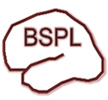-
Brain Lab. investigates brain features associated with various neuro -pathologies [head injury and hydrocephalus], derived using novel methods and focused on two different approaches global and structural. In the global approach, the relationship between neurophysiologic. volume and pressure response is computationally analyzed in terms of cerebrospinal. volume-pressure compensatory reserve or brain compartmental compliances. Continuous monitor of neurophysiologic signals and Cerebrospinal fiuid[CSF] pressure. These hold the potential to improve treatment for patients.
-
The Affective Cognitive Neuroscience Lab pursues research in the area of emotional cognition. We cobine behavioral and neurscietifix techniquws to understand how emotional informarion is processed differenrly from nonemorional. information, to what extent indiciduaks exert vuluntary and involuntary control over the course of emotion generation processes, and how emotion interacts with other cignitive procrsses. We emphasizw indibidual difference facrors in emotional processing that play key roles in defining individuals` characteristics and that explain.
-
Our lab aims to study the relationship between mind and brain, and ultimately to make useful applications based on the acquired knowledge for the practical purpose. Particularly using EEG, we have investigated several topics related to the human intentional mental property. We have tried to find their electrophysiological correlates, which can be consequently employed as potent EEG parameters to cognitively control the BCI in advance of events. In parallel, using focused-ultrasound, we have also studied how to modulate neural activity in a non-invasive manner, leading to changes in cognitive and behavioral responses. Taken together, using both EEG-based BCI and FUS-based CBI, we`d like to make a new technology of the brain-brain interface, by which people can communicate with each other directly from one brain to another.
-
The Machine Intelligence Laboratory (MiLab) is devoted to the development of computational models for various researches in the brain and cognitive engineering field. Specifically, we focus on 1) machine learning algorithms for data analysis and pattern identification, 2) brain disease/disorder diagnosis or prognosis by analyzing complex patterns inherent in neuroimaging and/or genetic data, and 3) non-invasive brain-computer interfaces to enhance human performance.
-
In Pattern Recognition Lab., we aim to develop the novel artificial intelligent technologies based on computer vision (Camera, CCTV, etc.) and signal processing (Brain signal) via pattern recognition algorithms. Specifically, we are performing research on brain-computer interface for external devices control, cognitive computer vision which can predict human activities, deep machine learning based on brain mechanism, and intelligent neuro-rehabilitation systems for disabled patients.
-
Brain signal processing laboratory is aimed to conduct brain engineering and researches via neuroimaging modalities such as structural/functional magnetic resonance imaging(MRI) and electroencephalography (EEG). More specific applications include the structural/functional MRI data analysis using signal processing and machine learning toward early diagnosis of neuropsychiatric conditions and neurologic diseases including the mild cognitive impairment, Alzheimer`s disease, sleep disorder, epilepsy, and depression. Recently, we are also interested in the development of non-invasive treatment of aforementioned conditions/diseases using real-time functional MRI based neurofeedback.
-
Optical Bio-Signal Processing Lab (OBSP) is interested in Optical Coherence Tomography (OCT), Near Infra-red Spectroscopy (NIRS), Intra-Body Communications (IBC), and biochip. Multi-channel functional NIRS based Brain-Machine interface (BMI) system has been built up for hemodynamic response detection of neo-cortex, and high speed spectral domain OCT (SD-OCT) was also developed for morphological imaging of a sample. Our lab pursues development of cutting edge BMI by integration of our research topics.
-
In Bionics and Photonics Lab, we focus on the research of optics based system development and optical signal/imaging processing for bio-imaging. Based on optical sensors and imaging technology for brain engineering and biomedical applications, our purpose is to a acquire signals from brain and biological samples in morphology and to analyze electrical/optical response signal in functions after extracting. Accordingly, advanced technologies such as optical coherence tomography, next generation photoacoustic brain-machine interface and imaging system technolgy, pattern recognition based automatic recognition of the sensory nerve system, and fiber bundle based functional imaging systems are investigated in depth.
-
In the cognitive Systems Lab, we have two main goals: -our first goal is to enhance our understanding of the algorithms employed by thr human cognitive system throufn the use of cutting-edge methods from machine learning and computer graphocs coupled with perceptual and cognitiver experiments. -our second goal is to transfer this knowledge to implementations of intelligent, artifical cognitive systems which can be used in rocotrics, computer vision, computer animation, and even in clinical applications. In the lab, we apply this combined experimental and computauional.








